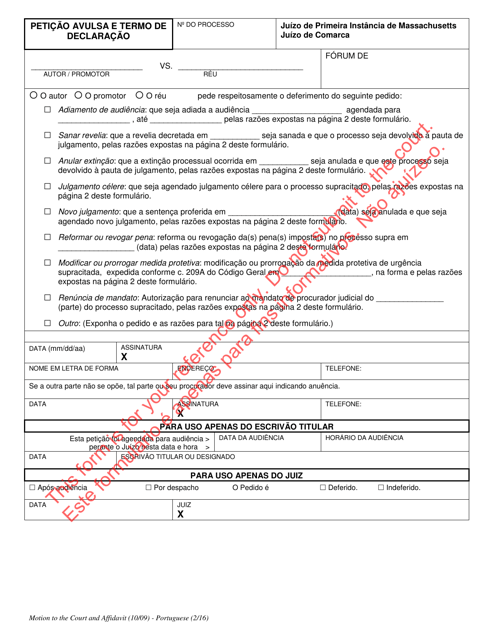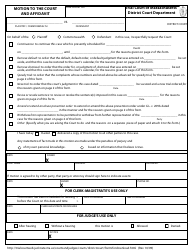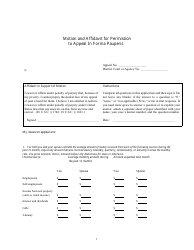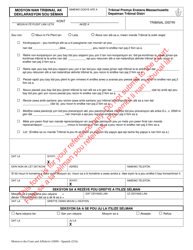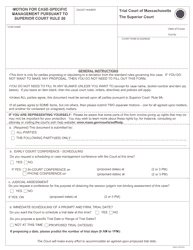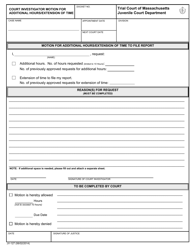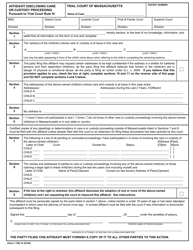Motion to the Court and Affidavit - Massachusetts (Portuguese)
This is a legal document that was released by the Massachusetts District Court - a government authority operating within Massachusetts.
The document is provided in Portuguese.
FAQ
Q: What is a Motion to the Court?
A: A Motion to the Court is a formal request made by one party in a legal case to the judge, asking for a specific action or decision.
Q: What is an Affidavit?
A: An Affidavit is a written statement made under oath or affirmation, usually used as evidence in a court of law.
Q: What is the purpose of filing a Motion to the Court?
A: The purpose of filing a Motion to the Court is to ask the judge to rule on a particular issue or make a specific decision in a legal case.
Q: What should be included in an Affidavit?
A: An Affidavit should include facts that are within the knowledge of the person making the statement, and it should be signed under penalty of perjury.
Q: How should I format a Motion to the Court or an Affidavit?
A: You should follow the specific rules and guidelines set by the court or jurisdiction where your case is being heard. It is advisable to consult with an attorney for guidance on formatting and content requirements.
Q: Can I file a Motion to the Court or an Affidavit in Portuguese in Massachusetts?
A: Yes, Massachusetts allows the filing of legal documents, such as Motions and Affidavits, in languages other than English, including Portuguese, if certain criteria are met. It is important to consult with the court or an attorney for specific requirements and procedures.
Q: What is the difference between a Motion to the Court and a Motion for Summary Judgment?
A: A Motion to the Court is a general term for any request made to the judge, while a Motion for Summary Judgment is a specific type of motion asking the judge to decide the case in favor of one party without a trial, based on the evidence presented.
Q: Can I submit additional documents along with a Motion to the Court or an Affidavit?
A: Yes, you may submit supporting documents or exhibits along with your Motion to the Court or Affidavit, as long as they are relevant to the issue at hand and comply with court rules regarding document submission.
Q: What happens after I file a Motion to the Court or an Affidavit?
A: After you file a Motion to the Court or an Affidavit, the other party may have an opportunity to respond or object. The judge will then review the motion and any responses before making a decision.
Q: Do I need a lawyer to file a Motion to the Court or an Affidavit?
A: It is not required to have a lawyer to file a Motion to the Court or an Affidavit, but it is often advisable to seek legal counsel, especially if you are unfamiliar with the court procedures and rules.
Form Details:
- Released on February 1, 2016;
- The latest edition currently provided by the Massachusetts District Court;
- Ready to use and print;
- Easy to customize;
- Compatible with most PDF-viewing applications;
Download a printable version of the form by clicking the link below or browse more documents and templates provided by the Massachusetts District Court.
